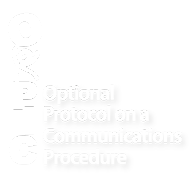FAQs
FAQs:
What is the Committee on the Rights of the Child?
The Committee on the Rights of the Child (the Committee) is composed of 18 independent experts on the rights of the child from different parts of the world. They meet three times a year in Geneva, Switzerland, during meetings called “sessions” where they monitor States implementation of the Convention on the Rights of the Child (UNCRC) and its first two Optional Protocols: the Optional Protocol on involvement of children in armed conflict (OPAC) and the Optional Protocol on sale of children, child prostitution and child pornography (OPSC).
! For the Committee to review/monitor a State’s implementation of the UNCRC and/or the OPAC and/or the OPSC, the State in question has to have previously accepted the competence for the Committee to do so (i.e. ratify/become a State party to the UNCRC and/or OPAC and/or OPSC).
During the sessions, the Committee also reviews individual communications (complaints) submitted by individual(s) claiming to be victim(s) of a violation by a State party of any of the rights set forth in the Convention on the Rights of the Child and/or its first two Optional Protocols. The Committee adopt Views concerning the individual communications and makes the relevant recommendations to States.
If the Committee receives information containing well-founded indications of serious, grave or systematic violations of the Convention on the Rights of the Child and/or its first two Optional Protocols by a State party, it can initiate an inquiry, conduct a visit to the country and publish a report with the relevant recommendations to the State.
! Individual communications and requests for inquiries can only be made against States parties to the Third Optional Protocol to the Convention on the Rights of the Child, also known as the Optional Protocol to the Convention on the Rights of the Child on a Communications Procedure (OPIC).
Who can make a complaint?
The Committee is able to receive complaints (individual communications) from children, groups of children or their representatives against any State that has ratified the OPIC.
Indeed, a complaint can be submitted by:
- an individual or a group of individuals within the jurisdiction of the State party in question; or
- by their designated representatives; or
- by others acting on behalf of the alleged victim(s) with their express consent; or
- by others acting on behalf of the alleged victim(s) without their express consent, provided that the author can justify his/her/their action.
What kinds of violations can be raised in a complaint and/or an inquiry?
The OPIC allows the Committee to review a complaint (individual communication) and/or a request for an inquiry about a violation of any right guaranteed under the Convention on the Rights of the Child (UNCRC), the Optional Protocol to the UNCRC on the sale of children, child prostitution and child pornography (OPSC), or the Optional Protocol to the UNCRC on the involvement of children in armed conflict (OPAC), if the relevant State has also ratified those treaties.
When can the OPIC be used?
The OPIC came into force on 14 April 2014, three months after the 10th State ratified the Protocol.
A complaint (individual communication) and/or a request of for an inquiry against one of the ten first States parties (Albania, Bolivia, Costa Rica, Gabon, Germany, Montenegro, Portugal, Slovakia, Spain and Thailand) can be brought in relation to a violation of a child’s rights that occurred after this date (14 April 2014).
For any other State, a complaint against it can be brought in relation to a violation of a child’s rights that occurred three months after the date of ratification of the State in question to the OPIC.
! The Committee can also look into violations that started to occur before the State’s ratification of the OPIC, provided that they extended after the States’ ratification of the Protocol.
The dates of ratification can be checked through the UN Treaty Database.
Which States can I bring a complaint against?
A complaint (individual communication) can be brought against any State that has ratified the OPIC.
You can check the ratification status of States here.
What is the difference between an individual communication and an inquiry?
Individual communications (complaints) and inquiries are two different mechanisms under the OPIC.
Some differences are that:
- Inquiries concern grave or systematic violations by a State party of rights set forth in the UNCRC and/or the OPAC and/or the OPSC. If the Committee receives reliable information indicating the existence of these patterns, it can invite the State party to cooperate in the examination of the information, as well as to submit observations without delay with regard to the information concerned. An inquiry can also be initiated at the own initiative of the Committee.
- Inquiries can only be presented against States parties to the OPIC who have not made a declaration withdrawing recognition of the Committee’s competence under article 13 of the OPIC, applicable with respect to the rights set forth in the UNCRC and/or OPAC and/or OPSC. Declarations and reservations to the OPIC can be checked here.
- To initiate inquiry procedures for grave or systematic violations, the exhaustion of domestic remedies is not required, nor is the identification of the victims. To submit an inquiry see details of requirements here.
- Where warranted, and with the consent of the State party, the inquiry may include a visit to the territory of the State party concerned.
How do I contact the Committee?
The Committee meets three times a year in Geneva, Switzerland, but it has a Secretariat supporting its work on a daily basis, which is based in Geneva.
| Secretariat contact details Committee on the Rights of the Child (CRC) Human Rights Treaties Division (HRTD) Office of the United Nations High Commissioner for Human Rights (OHCHR) Palais Wilson – 52, rue des Pâquis CH-1201 Geneva (Switzerland) |
Mailing address UNOG-OHCHR CH-1211 Geneva 10 (Switzerland)Tel.: +41 22 917 91 41 Fax: +41 22 917 90 08 E-mail: crc@ohchr.org |
! To submit individual communications (complaints) or for related questions, it will be important to contact the Petitions Team of the United Nations Office of the High Commissioner for Human Rights, also based in Geneva, Switzerland:
Petitions Team
Office of the High Commissioner for Human Rights
United Nations Office at Geneva
1211 Geneva 10, Switzerland
E-mail : petitions@ohchr.org

